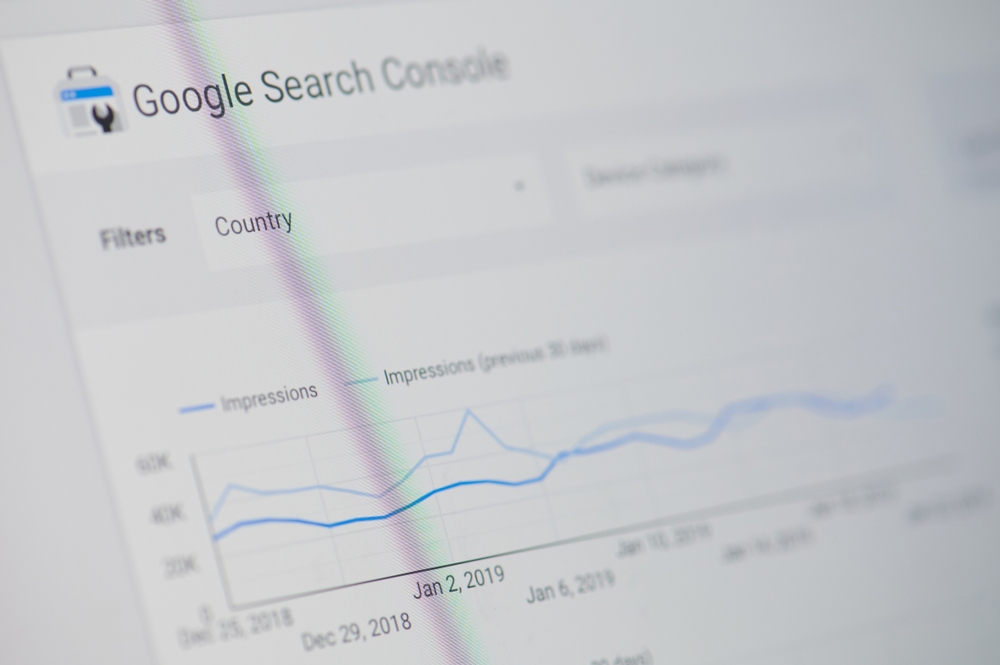How long does SEO take to work?
In this post, the Head of SEO, Rachel Walton addresses the urgent question of “how long does SEO take to work” along with providing valuable insights for SEO beginners.
SEO is a fantastic tool that is free to use and can provide you with a wealth of organic revenue and leads. SEO is free to use compared to paid advertising so it’s absolutely a no brainer to use. But how long does SEO take to work? In this post, I will explain what to expect.
How does SEO benefit a website?
SEO essentially provides you with free leads if you have a lead generation website or it can provide you with free revenue generation if you are an eCommerce website. Ultimately, it’s a free form of marketing – whereas the likes of paid search will require you to spend in order to potentially obtain leads or revenue.
So, if you are completely new to SEO and are unsure as to how to track SEO, then having Google Search Console is a great place to start. Google Search Console allows you to track your impressions and clicks.
Impressions is a number that indicates how many people have seen your link and may not have necessarily clicked through onto your website. Whereas clicks give you an indication of how many people have visited your website.
Both of these metrics provide insight into how often your website is being seen by people as well as the number of people who have clicked through to your website.
Another important thing to take note of is what search terms your website is being seen with. If you monitor these search terms against the number of impressions and clicks you are getting. This way if you keep on working to improve your website for these search terms then the more impressions you will get, the more clicks you will get and ultimately – the more revenue you will generate.

What are the most urgent SEO actions, especially if you are new to SEO?
Keyword research is one of the most essential tasks in SEO. Keyword research allows you to market your website, services and products around keywords that will help to build your brand. When conducting keyword research, it is important to identify keywords that have a high enough search volume along with a small enough competition that your website will be able to compete with.
Once you identify the keywords that you want to rank for whilst measuring the right search volume and difficulty – this will form the type of content that you write, the type of backlinks that you’re using and what pages you’re using to link to. Not only this but it will also inform your site architecture. Meaning it will help you structure your website by indicating what kind of pages that you want to create and market, which pages are the most important as well as how you want people to navigate through your website.
A great keyword research tool to use is Ahrefs. Although on the pricier side, Ahrefs allows you to research and track keywords that you are interested in. Whilst also providing you with crucial information regarding your website such as backlinks and organic traffic as well as your overall website health score. This health score determines how functional your website is and if you have everything in place that would be considered a good website.
If the price seems off-putting you can use free tools like UberSuggest. UberSuggest is Neil Patel’s keyword research tool which has great features such as keyword suggestions and even content ideas that you can use to implement your keywords.
If you’re feeling sneaky about it, you could also set up a Google Ads account and use their Keyword Planner Tool. This will give you decent keyword stats without having the need to set up an Ad campaign afterwards.
Regarding the higher end, SEMrush is a great tool that provides really good and accurate information. But similar to Ahrefs, this is certainly on the more expensive side.

How long does SEO take to work?
Firstly, I would say don’t expect anything for at least 6 months, just to manage expectations. An SEO’s favourite answer, which is true, is that it depends. It depends on so many factors that you need to take into consideration – factors such as how hard the competition is in your industry or how aggressive you are with SEO.
For example, you could change a few keywords on your homepage, address some duplicate meta descriptions or you could be publishing lots of content on your website or even link building as much as you can.
There are also loads of external factors that you need to take into consideration also. But regarding how long does SEO take to work, I would say between 6-12 months is the usual goal. But it also depends on what you want to rank for. For example, if you want to rank for a particular niche keyword – you will start to rank for that keyword a lot faster than ranking something that has a large search volume and a high keyword difficulty score.
It’s also important to know the impact of the work itself and how these SEO tasks can change ranking positions, for example, you might make a couple of small tweaks and find that your website has shot up 20 positions for a particular search term. Whereas other changes may take a longer period of time for the effects to be felt. SEO tasks such as page speed increases can take a while before you find your rank improving.
Regarding changes to improve your SEO and rankings, if you have made a change and you have done it for a reason, then stick to it. But if you have changed something and it has a detrimental effect straight away, then you are best to revert the changes and go back to the drawing board.
Ultimately, it takes a long time to build up trust with Google and if you’re consistently publishing content, particularly in a competitive space – then don’t expect it to rank overnight and don’t completely redo everything if it doesn’t work immediately.
It is also good to keep up to date with SEO forums and being on top of the latest Google algorithmic updates will help your rankings too.

How would you track the progress of SEO?
One of the best ways to track the progress of SEO is by keeping an eye on your Google Search Console by seeing how good your clicks and impressions are. It’s also important to keep an eye on your ranking positions, with your leading and lagging metrics. Your leading metrics are things that happen a lot sooner. These can be changes in ranking positions and changes in impressions. Whereas your lagging metrics are things that happen a lot later. These can be things such as changes in clicks, changes in organic traffic and changes in sales from organic. These are the main metrics you should focus on.
It is important to focus on your leading metrics first as you will be improving your ranking and your impressions. Then ultimately you are going to improve your traffic, then with that your revenue or leads will start to increase.
Naturally, you want to keep an eye on your money makers and you are right to do so. With this, you want to see how much revenue generates from organic and you want to see how many leads you’re generating from organic. Once you have started to build up a report with Google you can start focusing on how can you raise conversions and how can you make SEO work for your main products and services.

How do you convert traffic into customers?
One of the main things you want to look at when you want to convert traffic into customers is looking into conversion rate optimisation (CRO). CRO is when you increase the percentage of traffic who perform an action on your website. Whether it be buying a product, signing up for a service, filling out a form or even clicking on a link.
A great CRO tool to use is Google Optimize. Google Optimize allows you to run split tests on particular CTAs on your website. For example, you can measure what the difference could make if you change a particular button from red to green and see if this number actually increases.
The HotJar software that you can install on your website is a really impressive tool to use. HotJar allows you to look at heatmaps on pages of your website so you can get an idea of how people are interacting with your page. This will give you great insights such as how far users are scrolling on a page before leaving as well as how people are using the website. Giving you ideas on how you can improve the user journey so they may become customers in the future.
Having really unique product descriptions can help your website convert too if you have an eCommerce website. If you’re a lead generation website and you’re creating consistently fresh content on your website, make sure that you have the contact form at the bottom of the page. It’s great to give people advice about divorces if you’re a divorce lawyer. At the end of the page, you should also have a way for your readers to get in touch with you to get further advice.
